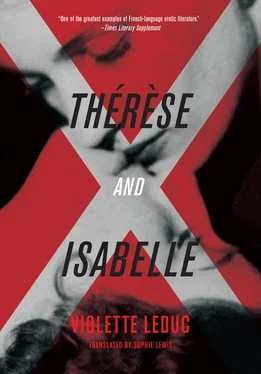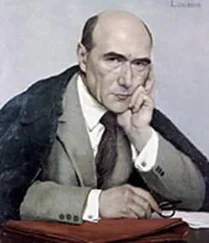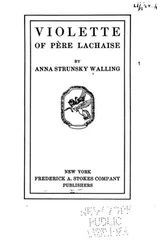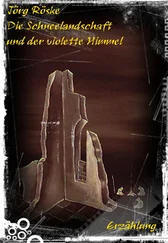“And you, how old are you?” the new monitor asked me.
Isabelle will find out my age. “Seventeen,” I mutter. “Are you in the same class?” asks the monitor. “Yes, in the same class,” replies Isabelle, energetically rinsing out her wash glove. “She’s lying to you,” I shout. “You don’t see she’s making fun of you. I am not in her class and I don’t care.”
“Remember your manners,” says the monitor to me.
I opened my curtain a crack: the supervisor was moving away, returning to his reading in the passage, Isabelle was giggling in her box, another girl was up to something with her sweet wrappers.
“I have strict orders,” whispered the new monitor. “No visitors in the boxes. Each girl in her own.”
We were always under threat of an evening inspection by the headmistress. We would tidy our comb, our nailbrush, our washbowl, and lie down in our anonymous beds as if on a small medical ward. As soon as we had finished washing and tidying, we would present ourselves for the monitor’s inspection, neat and tidy and in bed. Some students offered her pastries, detained her with flattering sweet talk, while Isabelle withdrew into her tomb. As soon as I had recreated my nest in the cold bed, I forgot about Isabelle, but if I woke, I thought of her again, to hate her. She did not dream aloud, her bedstead did not creak. One night, at two o’clock, I got up, crossed the passage, held my breath, and listened to her sleeping. She was not there. She even mocked me in her sleep. I had gripped her curtain. I had stayed there listening. She was gone; she had the last word. I hated her between sleeping and waking: in the morning bell at half past six, in the low tone of her voice, in the splashing and draining sounds as she washed, her hand snapping closed the box of dental paste. All one can hear is her, I told myself stubbornly. I hated the dust from her room, when she let the duster poke under my curtain, when she tapped her fingers on our partitions, when she thrust her fist into her percale curtain. She spoke rarely, she made the movements required of her, in the dormitory, the refectory, in the rows of girls; she cut herself off, brooding in the schoolyard. I wondered what gave her cause for such aloofness. She was studious but without either self-importance or zeal. Often Isabelle would slip my tunic belt undone; she played cool if I grew angry. She would start the day with this childish tease and straight away retie the belt at my back, humiliating me twice over instead of once.
I got up, wary as a smuggler. The new monitor stopped cleaning her nails. I waited. Isabelle, who never coughed, coughed: tonight she had stayed awake. I blocked her out and plunged my arm up to the shoulder into the drab cloth bag hanging in my wardrobe. Hidden inside this bag of dirty laundry were some books and my flashlight. I used to read at night. That evening I got back into bed without any appetite for reading, with the book, with the flashlight. I turned on the flashlight, I gazed lovingly at my Silent Sisters under the chair. The artificial moonlight coming from the monitor’s room sucked the color from the contents of my cell.
I turned out the light; a girl crumpled some paper, I pushed away my book with a disappointed hand. Deader than a corpse, I thought to myself, picturing Isabelle lying stiff as a poker in her nightgown. The book was closed, the flashlight buried in the bedcovers. I put my hands together and prayed wordlessly; I asked for a world unknown to me, I listened, near my stomach, to the haze inside the seashell. The monitor also turned her light out. That lucky girl is asleep, lucky thing, she has a tomb to be lost in. The lucid ticking of my watch on the bedside table made my decision for me. I took up my book again and read beneath the covers.
Someone was spying behind my curtain. Hidden under the cover, I could still hear the inexorable ticktock. A night train left the station, left it to follow the monstrous whistle that was piercing the school’s alien shadows. I threw back the bedcover; I was afraid of the comatose dormitory.
Someone was calling from behind the percale curtain.
I played dead. I pulled the cover back over my head and relit the flashlight.
“Thérèse,” someone called into my box.
I turned it off.
“What are you doing under your covers?” asked the voice, which I didn’t recognize.
“I’m reading.”
They tore off my sheet and pulled my hair.
“I told you I’m reading!”
“Quietly,” said Isabelle.
Another girl coughed.
“You can tell on me if you like.”
She will not tell on me. I am unfair to her and I know it is unfair to say that to her.
“You weren’t asleep? I thought you were the best sleeper in the dormitory.”
“Softer,” she said.
I whispered too loudly, I wanted to be done with this joy: I was elated to the point of pride.
Visiting me, Isabelle came no further than my percale curtain. I was suspicious of her shyness, suspicious of her long, loose hair in my cell.
“I’m afraid you’re going to say no. Say you’ll say yes,” gasped Isabelle.
I had lit my flashlight; in spite of myself I had some consideration for my visitor.
“Say yes!” whispered Isabelle.
She was pressing a finger down on my dressing table.
She gripped her gown cord, pulling the gown tight around her. Her hair tumbled down over her orchards, her face grew older.
“What are you reading?”
She lifted her finger off the dressing table.
“I was beginning it when you came in.”
I turned out the light because she was looking at my book.
“The name. . tell me the name of the book.”
“ A Happy Man .”
“That’s a title? Is it good?”
“I don’t know. I just began.”
Isabelle turned on her heel; a curtain ring slid along the rail. I thought she might be disappearing back into her tomb. She stopped.
“Come and read in my room.”
She was leaving again, creating a distance between her request and my reply.
“Will you come? Say yes?”
“I don’t know.”
She left my box.
I could not regain my breath or my routine. She went back to her bed, her refuge. I wanted her immobile, lying still while I left my bed, my refuge. Isabelle had seen me with the sheets up to my neck. She did not know that I was wearing a special nightgown, a nightgown all stitched in honeycomb panels. I used to believe that personality came from outside us, from clothes that were different from those of other people. My visitor had crumpled my nightclothes without touching them, without knowing of them. The silk muslin nightgown slipped around my hips with the softness of a cobweb. I put my boarder’s tunic on; I left my box with my wrists held tight in the elasticated cuffs of my regulation smock. The monitor was sleeping. I paused before the percale curtain. I entered.
“What’s the time?” I exclaimed brightly.
I stayed standing by the curtains, pointing my flashlight toward her night table.
“Come in, there is room. .”
I could not get used to her long, loose hair, the hair of a stranger who intimidated me. Isabelle checked the time.
“Won’t you come in?” she said to her watch.
The opulence of that hair, which swept over the bars at the head of her bed, over her shoulders, the night table, the lace mat, enveloped me. This sheer screen that glistened, that hid the face of a girl reclining in a hospital room, frightened me. I switched off the flashlight.
Isabelle got up. She took the book from me, and the flashlight.
“Come now,” she said.
She had got back into bed.
From her bed, she shone the flashlight at me.
I came forward. Isabelle was gently patting her hair.
I sat down on the mattress edge. She reached over my shoulder, she picked up my book from the table, gave it to me, reassured me. I leafed through it since she was staring at me; I didn’t know which page to stop at. She was waiting for whatever I was waiting for. I fixed on the capital letter of the first sentence.
Читать дальше











